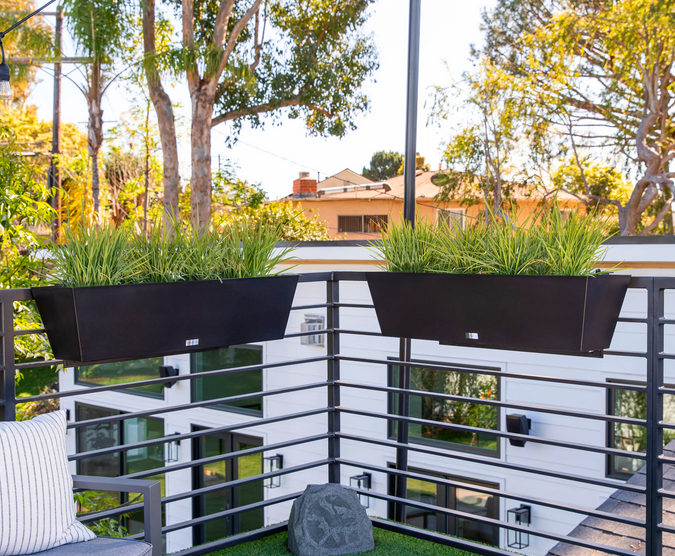Balcony railing planters have become increasingly popular among homeowners and apartment dwellers alike as a way to add greenery and color to their outdoor spaces. These versatile planters can be used to grow a wide variety of plants, from flowers and herbs to small shrubs and vegetables.
Balcony Railing Planter
Types of Balcony Railing Planters
Balcony railing planters are available in a variety of styles, sizes, and materials. Some of the most popular types include:
- Hanging planters: These planters are suspended from the balcony railing using hooks or brackets. They are a good option for small spaces, as they do not take up any floor space.
- Wall-mounted planters: These planters are attached to the wall of the balcony. They are a good option for larger plants that need more support.
- Freestanding planters: These planters can be placed anywhere on the balcony, as they do not need to be attached to a railing or wall. They are a good option for large plants that need a lot of room to grow.
Balcony Railing Planter Materials
Balcony railing planters are made from a variety of materials, including:
- Plastic: Plastic planters are lightweight and durable, making them a good option for balconies that are exposed to strong winds.
- Metal: Metal planters are more durable than plastic planters, but they can also be heavier.
- Wood: Wood planters add a natural touch to a balcony. However, they are not as durable as plastic or metal planters and may need to be replaced more often.
- Ceramic: Ceramic planters are a beautiful addition to any balcony. However, they are also fragile and can be easily broken.

Balcony Railing Planter Uses
Balcony railing planters can be used to grow a wide variety of plants, including:
- Flowers: Flowers are a popular choice for balcony railing planters, as they add color and beauty to a space. Some popular flowering plants for balcony railing planters include petunias, impatiens, and geraniums.
- Herbs: Herbs are also a good choice for balcony railing planters, as they can be used to add flavor to food. Some popular herbs for balcony railing planters include basil, thyme, and rosemary.
- Vegetables: Some vegetables can also be grown in balcony railing planters, such as tomatoes, peppers, and cucumbers. However, it is important to choose vegetables that are suitable for growing in a container.
- Shrubs: Small shrubs can also be grown in balcony railing planters, such as boxwood, azaleas, and hydrangeas. However, it is important to choose shrubs that are suitable for growing in a container and will not get too large.
Balcony Railing Planter Features
Balcony railing planters often come with a variety of features, such as:
- Drainage holes: Drainage holes allow excess water to drain out of the planter, which helps to prevent the roots of the plants from rotting.
- Saucers: Saucers can be placed under planters to catch excess water. This helps to prevent the water from damaging the balcony floor.
- Trellises: Trellises can be used to support climbing plants, such as ivy and morning glories.
- Hooks: Hooks can be used to hang planters from the balcony railing.
- Brackets: Brackets can be used to attach planters to the wall of the balcony.
Balcony railing planters are a great way to add greenery and color to a balcony. They are available in a variety of styles, sizes, and materials, so you can find the perfect planter for your needs. With a little care and attention, you can grow a beautiful and thriving garden on your balcony.

Bir yanıt yazın